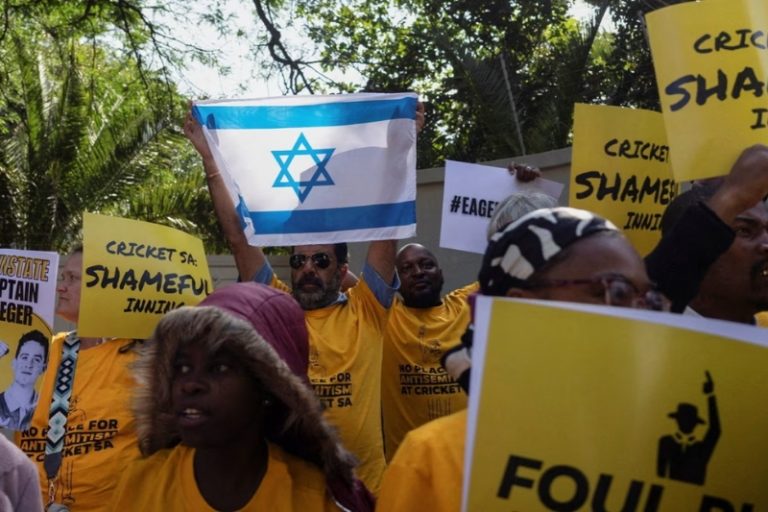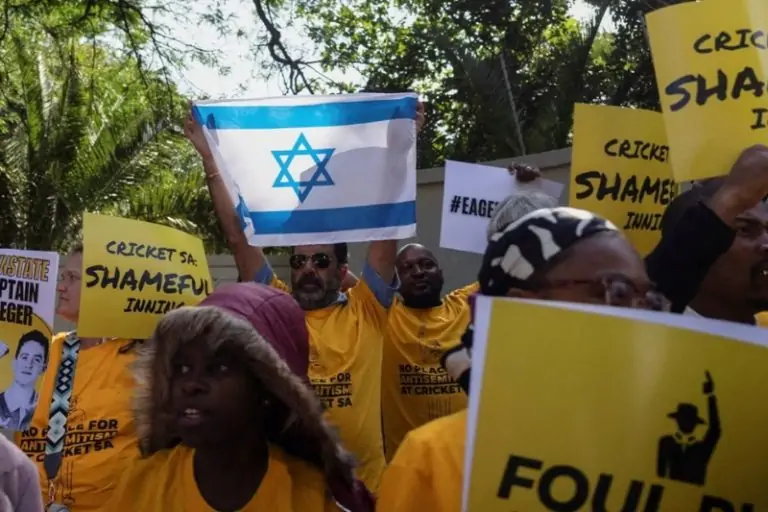

the south african jewish community faces political tensions and resilience
The South African Jewish community expressed dismay after President Cyril Ramaphosa reportedly rehearsed genocide charges against Israel during a meeting that was supposed to address rising antisemitism. Instead of discussing the safety concerns of the Jewish constituents, Ramaphosa allegedly accused Israel of committing genocide, later citing the meeting when South Africa charged Israel with genocide at the International Court of Justice.
The Jewish Board of Deputies expressed a sense of betrayal, highlighting that they had called the meeting to discuss antisemitism, only to find it instrumentalized in the genocide charge against Israel. The meeting in the genocide case implied that South Africa’s Jews are considered agents of Israel, but Ramaphosa’s office didn’t address the claims or make it clear.
The incident highlights the hostility the Jewish community faces from certain sectors of the South African political establishment and raises concerns about the future of Jewish life in the nation. Despite difficulties, the community has maintained its strength and fortitude, as seen in its grassroots initiatives and acts of solidarity.
The episode involving President Ramaphosa reflects broader concerns about antisemitism in South Africa, where the Jewish community has encountered instances of discrimination and hostility. Despite efforts to raise awareness and address hate crimes, antisemitic incidents persist, leading to feelings of insecurity and vulnerability among South African Jews.
The Jewish Board of Deputies has been vocal in condemning antisemitism and advocating for the protection of Jewish rights and freedoms. However, the community faces challenges in combating prejudice and misinformation, particularly in the face of political narratives that seek to delegitimize Israel and its supporters.
As South Africa grapples with issues of identity and diversity, the Jewish community remains resilient, drawing strength from its heritage and collective solidarity. Through dialogue, education, and community engagement, efforts are underway to promote understanding and tolerance, fostering a society where all individuals can live free from discrimination and bigotry.
The incident involving President Ramaphosa highlights the complex political landscape in South Africa, where tensions surrounding Israel-Palestine relations intersect with domestic issues of identity and representation. As the country grapples with its own challenges, including socioeconomic disparities and historical injustices, the Jewish community finds itself navigating a delicate balance between advocating for its interests and confronting external pressures.
Despite facing adversity, South African Jews remain steadfast in their commitment to their faith and heritage. Community leaders continue to work tirelessly to promote dialogue and understanding, both within the Jewish community and with broader society. Initiatives aimed at fostering interfaith cooperation and social cohesion are underway to build bridges and promote mutual respect among diverse communities.
Moving forward, the South African Jewish community remains vigilant in safeguarding its rights and freedoms while also contributing to the country’s ongoing efforts towards reconciliation and progress. By embracing the values of tolerance, compassion, and unity, the community strives to uphold the principles of democracy and pluralism, ensuring a brighter future for all South Africans.
The incident serves as a reminder of the complexities inherent in addressing antisemitism and promoting religious tolerance in diverse societies. While South Africa has made strides in recognizing the rights of minority groups, challenges persist in combating prejudice and discrimination. However, the episode also presents an opportunity for reflection and dialogue as stakeholders come together to address underlying issues and foster a culture of inclusivity and respect.
Moving forward, we need to make concerted efforts to address the root causes of antisemitism and promote greater understanding and acceptance among different communities. By investing in education, awareness-raising, and interfaith dialogue, societies can create environments where all individuals feel valued and respected, regardless of their religious or cultural background.
While the incident involving President Ramaphosa underscores the ongoing challenges faced by the South African Jewish community, it also highlights the resilience and determination of individuals to stand up against hate and bigotry. Together, we can uphold our democratic principles and foster a society that celebrates and embraces diversity.
National teams from Africa advance their World Cup qualification pursuit as they take part in Matchday 5 of the qualifiers.…
Creative Africa Nexus (CANEX) is running the Book Factory Prize for Publishing in Africa again to award $28,000 to African…
Canadian companies have expanded their presence as major African mining stakeholders and invested more than $37 billion. Africa holds the…
The South African government wants people to plant one million trees across the nation within a single day on September…
The government's statistics regulator showed that South African inflation stayed at 3.2% during February and rose below the projected 3.3%.…
Keywords: Cape Town, African Energy Chamber, Africa, The 2025 African Energy Week (AEW) will host the top energy leaders from…
This website uses cookies.